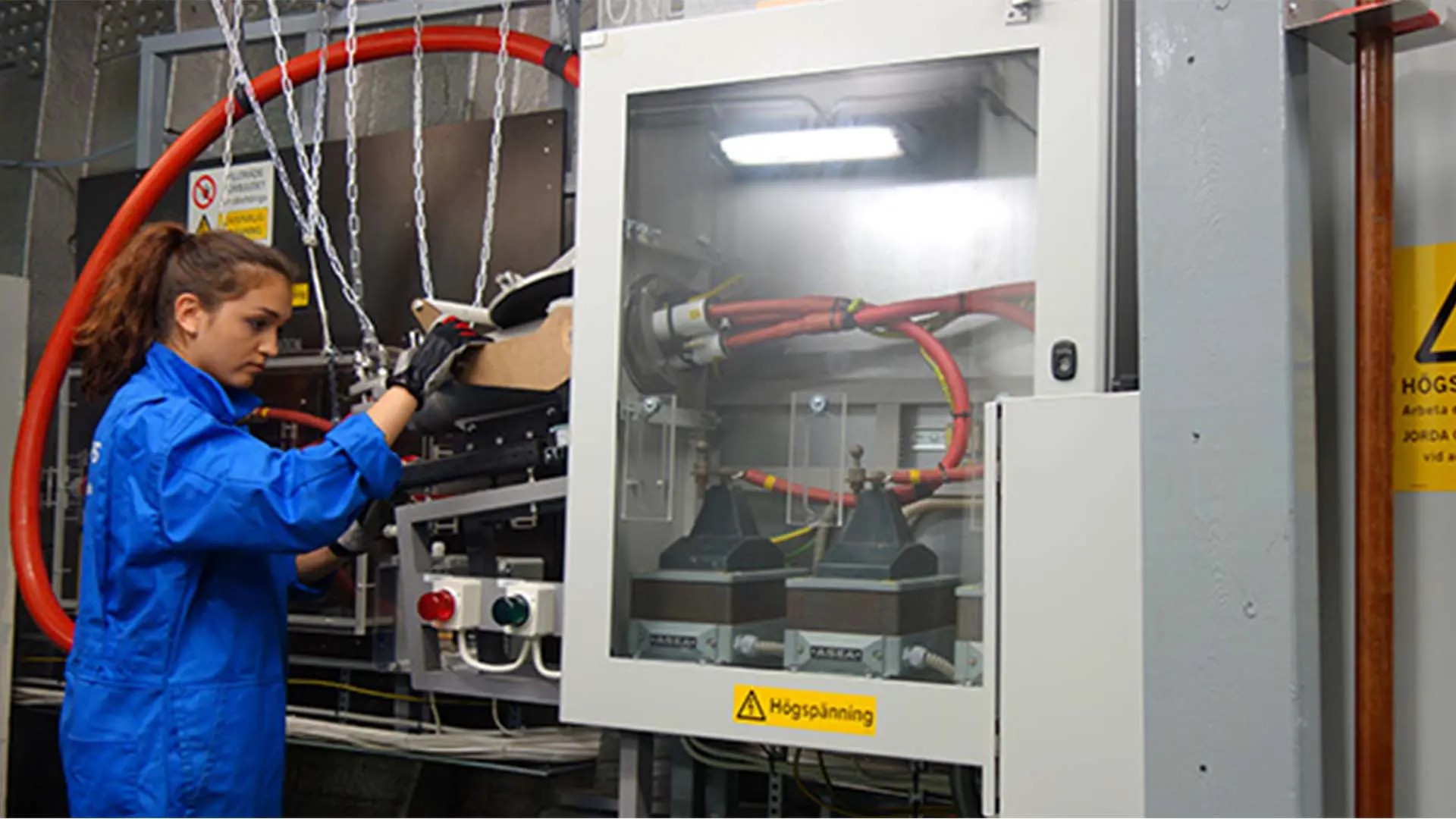
At Maritiman our students can test their theoretical knowledge on a practical level, and implement practical steps required by the Swedish Transport Agency. Start-up of vessels, removal and installation of modern internal combustion engines are included, as well as basic electrical operations.
When they start at Maritiman the students are in their second year at the Marine Engineer programme. They've already been out at sea for ten months and five weeks of internship is added to this. This practice has always been mandatory, but it was previously conducted in cooperation with external partners; now it takes place at Maritiman. This makes the practice more concentrated, more efficient and is of higher quality than before. From 2017, a high voltage part will be part of the programme for marine engineers. The operations also include seamanship for the nautical training. We also have external electrical courses at various levels for professionals.
In our engine lab, we measure the amount of air emissions from different ship fuels in order to find out how much the ships exhaust, so we can understand how these emissions can affect people and the environment. The fuels used in our measurements are diesel environmental class I, as well as marine fuels with different sulfur contents, such as marine diesel and HFO (Heavy Fuel Oil).
On screens we read the results from the ongoing measurements of particle emissions. The apparatus measures the number of particles, the particle mass and the total concentration of particles in the flue gas. The size of the particles being measured is 5-500 nanometers (10 ^ -9 m) and are the particles that have the most negative impact on our health. Particles that also affect our climate.